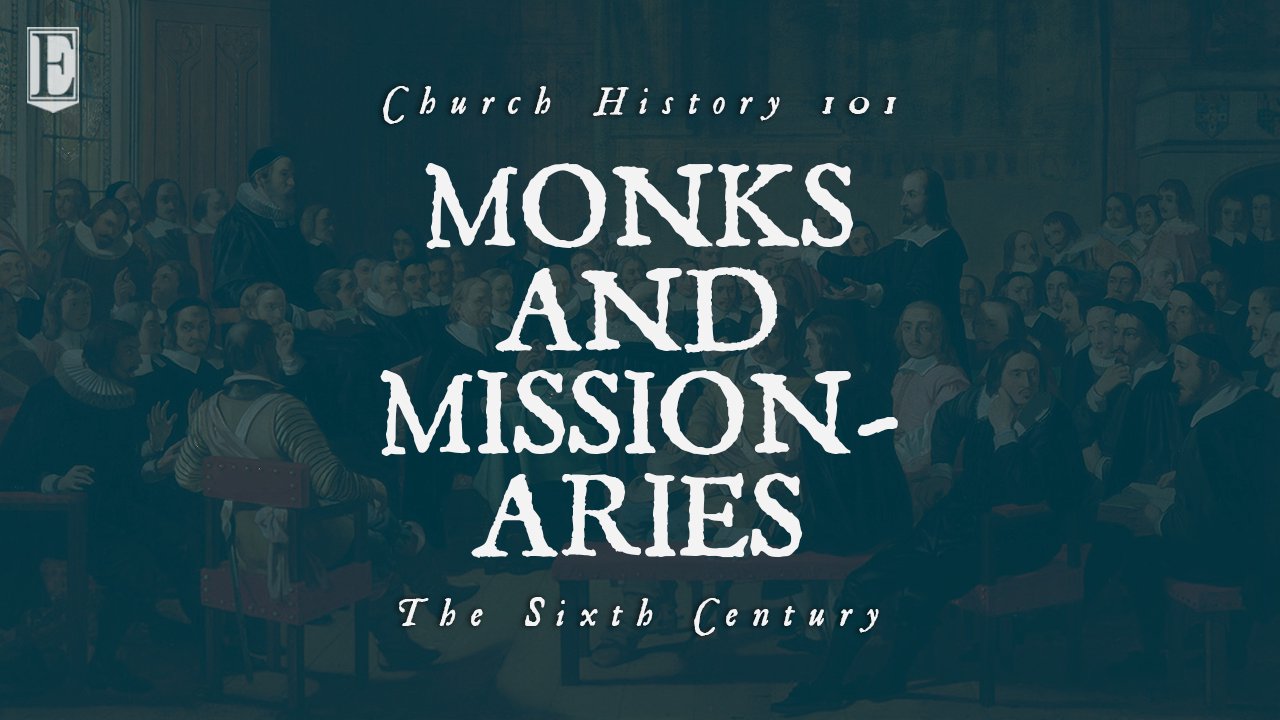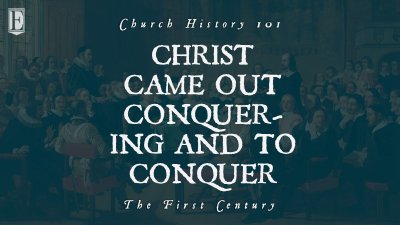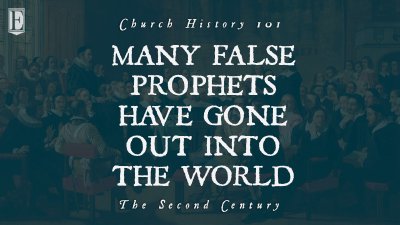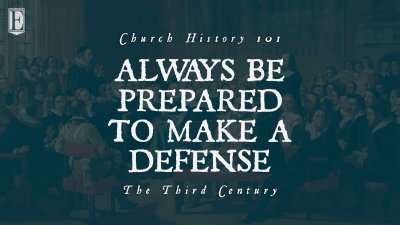What happened in the Sixth Century (500-600) that shows us how Christ built His church as He continued to conquer the nations?
I. MONASTICISM BEGAN TO FLOURISH THROUGH A MAN NAMED BENEDICT (1 Corinthians 7:17, 20). In the Sixth Century a man named Benedict left Rome to live as a hermit, but others followed him to be his disciples. Benedict is knowns as the “patriarch of Monasticism.” These Monks rightly wanted to devote their entire lives to Jesus, but some of them thought that meant leaving their jobs and lives in the world to be live separate.
Christ says through Paul in 1 Corinthians 7:17, 20, “Only let each person lead the life that the Lord has assigned to him, and to which God has called him. This is my rule in all the churches. . . Each one should remain in the condition in which he was called.”
Sometimes new Christians think that what it looks like to serve Christ means quitting their job, but that is not necessary. We are to glorify God in and through our jobs, not necessarily by leaving them. The aim of Monasticism was right, but part of the way the Monks went about it was a bit off. We should learn from them, however, how seriously we should take being devoted to Jesus.
II. THE GOSPEL CAME TO SCOTLAND THROUGH THE LABORS OF A MAN NAMED COLUMBA (Isaiah 49:6). Columba, along with other men, planted Christian communities all over Scotland so they could bring the gospel to those who did not yet believe in Jesus. They did this because in Isaiah 49:6, God the Father says to God the Son, “I will make you as a light for the nations, that my salvation may reach to the end of the earth.”
Now, it is important to understand that Columba was a monk! Not all Monks wanted to go live by themselves totally alone, just them and Jesus; some Monks like Columba wanted to send Christians all over to start these Christian communities so that the people in that area would know Christ.
God used men like Columba to bring the gospel to Scotland, and he did it much like we are trying to do it today—by planting churches or Christian communities in a place that needs the gospel. Columba said, “Devote yourself to three labours every day: prayers, work, and reading.” We should learn from him that we can accomplish great things for Christ’s glory if we devote ourselves daily to prayer, hard work, and reading the Scriptures.
CONCLUSION. In the sixth century, I) Monasticism began to flourish through a man named Benedict; and II) The gospel came to Scotland through the labors of a man named Columba.
SIXTH CENTURY MEMORY VERSE. “I will make you as a light for the nations, that my salvation may reach to the end of the earth” (Isaiah 49:6).
SIXTH CENTURY MEMORY QUOTE.
“Christ is the world’s redeemer,
The lover of the pure,
The Fount of heavenly wisdom,
Our trust and hope secure.” (Columba).
A SONG BY COLUMBA. Christ is the World’s Redeemer.
Christ is the world’s Redeemer,
The lover of the pure,
The Fount of heavenly wisdom,
Our trust and hope secure;
The Armour of His soldiers,
The Lord of earth and sky;
Our Health while we are living,
Our Life when we shall die.
Christ hath our host surrounded
With clouds of martyrs bright,
Who wave their palms in triumph,
And fire us for the fight.
Christ the red cross ascended,
To save a world undone,
And, suffering for the sinful,
Our full redemption won.
All glory to the Father,
The unbegotten One;
All honor be to Jesus,
His sole begotten Son;
And to the Holy Spirit—
The perfect Trinity.
Let all the worlds give answer,
“Amen—so let it be.”
Down in the realm of darkness
He lay a captive bound,
But at the hour appointed
He rose, a Victor crowned;
And now, to heaven ascended,
He sits upon the throne,
In glorious dominion,
His Father’s, and his own.

MONKS AND MISSIONARIES: The Sixth Century
The Sixth Century
October 20, 2022 • Brett Baggett • Isaiah 49:6, 1 Corinthians 7:17–20
More from
Church History 101







